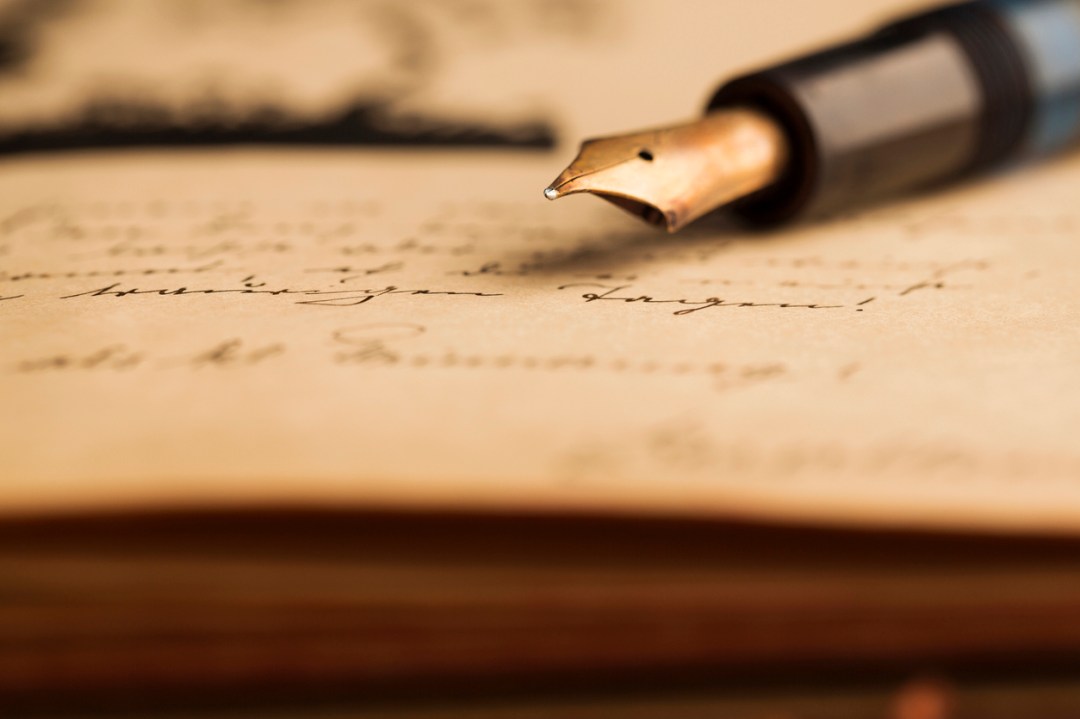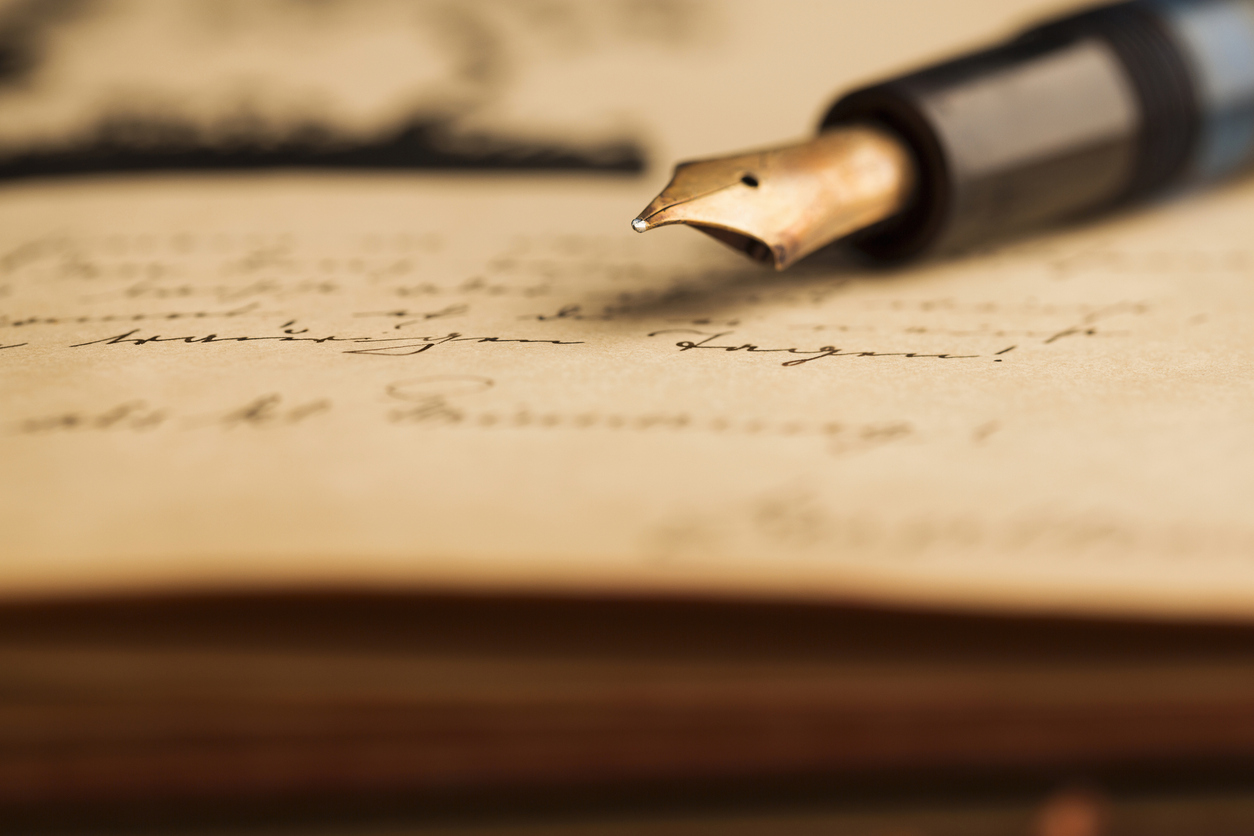In a recent Low Life column, Jeremy Clarke referred to Edward Thomas and his writing of 16 poems in just 20 days. Similarly, practically all of the poems that made Wilfred Owen famous were composed in a few months (and when he was still in his twenties). It has been the same for many of our greatest poets. This prompts a few reactions: one is undoubtedly a sense of inferiority. But another is the thrill of possibility. It doesn’t matter if you’ve produced nothing of any literary merit in your life to date: a sudden burst of inspiration over a few weeks could be all you need.
This is something almost unique to creative pursuits – you won’t be making any breakthroughs in nuclear fission outside of your nine to five – and it is particularly true of poetry. I am not sure the same could even be said for music or painting. But poetry dangles in front of the talented amateur the tantalising prospect of creative redemption.
It is, I think, partly a function of time: while writing a book is surely only second to dieting in the popularity stakes for new year’s resolutions, few ever get round to really trying to write their long-planned magnum opus. It takes just too long to produce 400 pages that you know in your heart of hearts is unlikely to find a publisher or even be read by anyone beyond a dutiful spouse. Not that I would like to put anyone off the attempt. But consider poetry for a moment: one well-spent rainy Sunday afternoon is all you need to have a couple of poems under your belt. And while no one is going to thank you for dumping a first draft of your debut book manuscript in their lap as a gift, you can absolutely find inventive ways to shove poems under readers’ noses, while earning yourself brownie points in the process. Need a thoughtful Mothering Sunday note to accompany the flowers? Tick. Valentine’s Day sonnet to show her how much you care? Consider it done. ‘Who needs the Bard, I’m a poet now, don’t you know darling.’
The aim does not need to be fame or greatness. The composition of poetry can be a crutch in tough times in the same way as can writing a diary. The process is an end in itself
It is not just that poetry composition can be satisfyingly quick. It is also that the barriers to entry are low. Some people are intimidated by things like metre, and so join instead the legion of wannabe children’s fiction writers to avoid ever confronting their ignorance of iambic pentameter. But while I have an attachment to formal verse (strict metre and rhyme) and blank verse (metre, no rhyme), most modern poetry is free verse. Yes, Robert Frost described free verse as like playing tennis without a net – a sentiment I happen to sympathise with. And yes, of course professional poets will say you should master traditional technique first, even if you then intend to free yourself from its constraints – Ezra Pound was said to have written a sonnet a day for a year to hone his skill before abandoning the metronome. But really there’s nothing stopping you from diving straight in and writing worthy poetry without ever doing the hard graft that sometimes comes with traditional prosody.
There is something else. It can be tremendously cathartic to know that even when you are at your lowest ebb – heartbroken, grieving or depressed – you can produce something brilliant. Indeed, it is precisely at these moments – when emotions are most raw, the sufferings of life most acute – that you are most likely to produce your best work. Of course, to write your ‘Sonnet 18’ it helps to be madly in love. But an aching heart is as powerful a poetic spur. It is when most depressed about the state of the city all around you that you are most likely to write your version of Blake’s ‘London’. And it is in moments of despair and disillusionment, when you wish to be whisked away from the modern world and live as a hermit in a ‘small cabin… of clay and wattles made’ that, like W.B. Yeats, you are likely to find most inspiration in the pen. The aim does not need to be fame or greatness. The composition of poetry can be a crutch in tough times in the same way as can writing a diary. The process is an end in itself.
I recently spent several days in north Wales doing nothing other than rambling about country lanes and stopping off at all the pubs I passed, instead of sitting at a desk and tackling a growing number of writing deadlines as had been the intended plan. No matter: on the last day, at the last pub, as I sat nursing a pint, I overheard snatches of conversation from some locals which inspired a poem that I scrawled on the back of a serviette. I even had to get another pint to sustain me while I finished it. It was, you guessed it, about moping around country pubs, and rather good it was too. That was when the thought occurred to me that poetry can also be the perfect excuse for all sorts of idle leisure without prompting any guilt. For inspiration can come at any moment, and is most likely to come when out experiencing all that life has to offer rather than chained to a desk.
As I headed back to London from my writing retreat I felt rather buoyant at my unexpected productivity. OK, I hadn’t made a dent in the work I had meant to be doing. But I had a poem in my breast pocket and that’s no mean thing. After all, it’s not as if I’d spent the entire time moping about in pubs. Well actually, come to think of it…







Comments